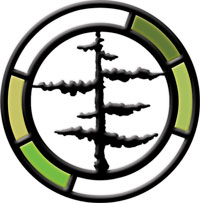
Environmental Philosophies & Ethics
EVR 3020
Session 10: Ecological Pragmatism:
Convergence, Conservation, Preservation & Householding
Reading Assignment: Edward Wimberley Nested Ecology, Chapter 7; Attfield, Robin, (2018) Chapter 3: "Future Generations." and Chapter 5 "Sustainability & Preservation," Edward Wimberley (2008) "Conservationism, Preservationism, and Environmentalism Convergent and Divergent Theological Foundations," Journal of Religion and Society. Supplement Series 3, p. 66-95.
Video Assignment: A New Type of Conservation: Breaking Free of Two Myths About Nature - Peter Kareiva; Theodore Roosevelt: Conserving America's Future; New Age of Conservation; The Wildlife Trusts (UK); Gifford Pinchot: Conservation Hero; Gifford Pinchot - Chief of the U.S. Forest Service; Gifford Pinchot: America's Forester; Biography of Gifford Pinchot: Seeking the Greatest Good;John Muir and Hetch Hetchy (1)(2)(3) Biography of John Muir; Green Fire: The Life & Legacy of Aldo Leopold; AND The American Experience: Teddy Roosevelt
Homework Assignment:
-
Explain what Wimberley means by householding as an approach to living within the constraints of natural resources and environments.
-
What is the moral standing owed future generations and how can pragmatic approaches to environmental management vouchsafe the interests of these generations?
-
What does "discounting future interests" entail?
-
What are the UN Sustainable Development Goals?
-
Compare and contrast the contributions of John Muir and Gifford Pinchot to the current environmental movements of our day.
-
Describe how Gifford Pinchot's theology informed his approach to conservationism?
-
Compare and contrast Pinchot's spiritual perspective on the environment to that of John Muir.
-
What contributions did Theodore Roosevelt make to our nation's environmental heritage and what as his relationship with Gifford Pinchot?